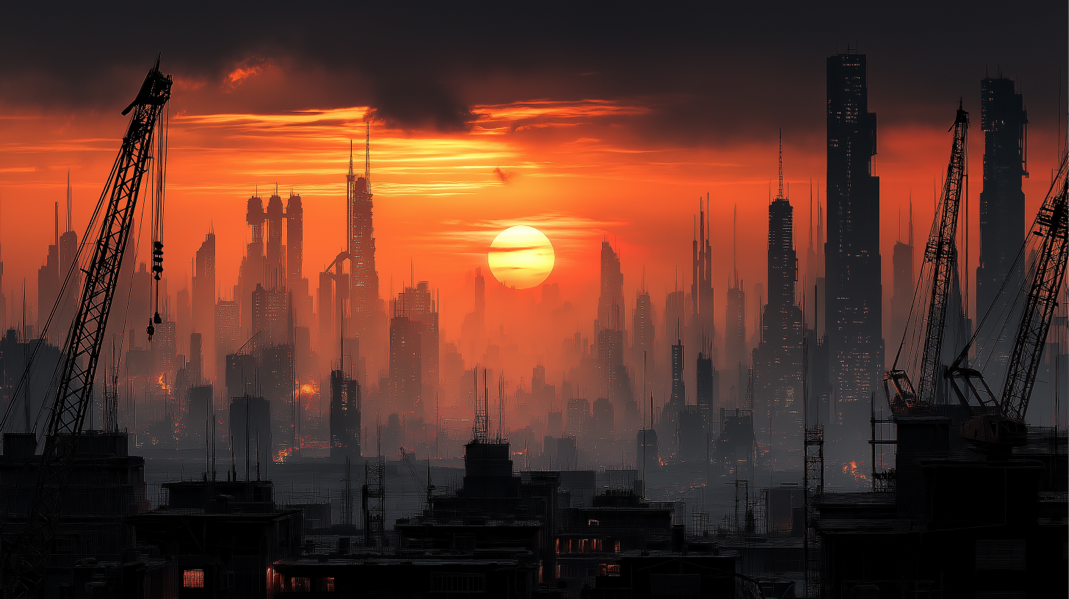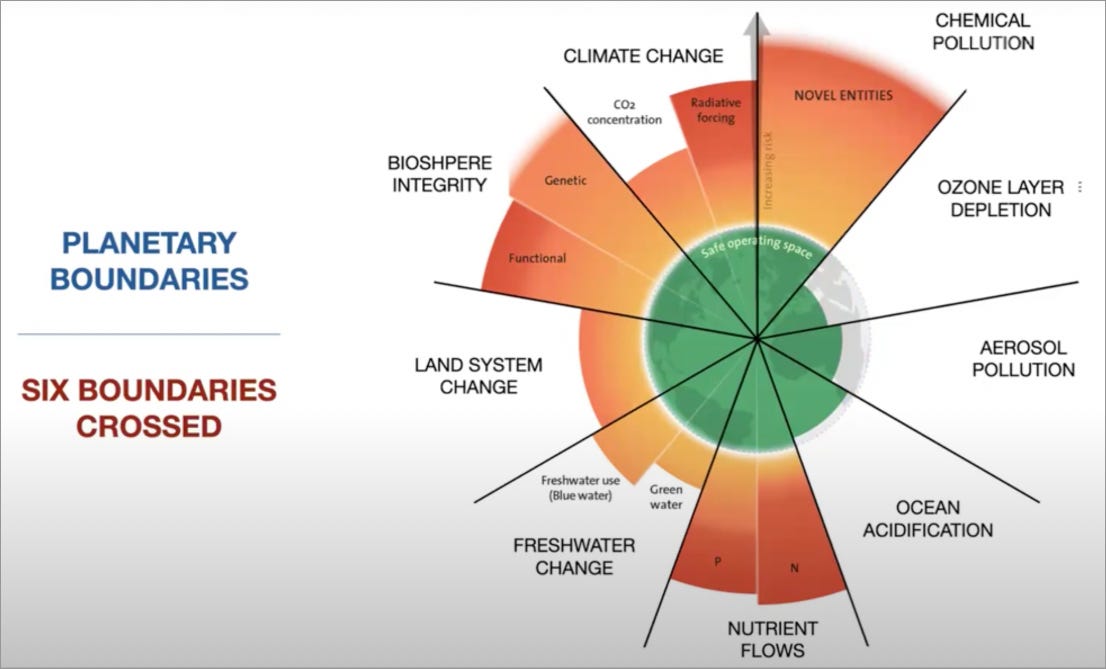The Only Problem Worth Solving
Part One of a Two-Part Series on the Thinking of Daniel Schmachtenberger
I recently came across Daniel Schmachtenberger, a systems thinker doing everything he can to show the human race which problem we actually need to solve. He strikes me as a brilliant individual who takes a bit of concerted effort to understand, so today I’m trying to decode some of his most earthshaking observations for your benefit.
This is part one of a two-part series. Today’s section is a bit heavy, but please stick with me… part two will be much more optimistic.
Daniel argues that our biggest problem isn’t any of the ones that might leap to the front of your mind: it’s that we’re living inside a system that keeps producing crisis after crisis. It’s like fighting a hydra: cut off one head, two more appear.
Daniel calls this the metacrisis—a tangle of interlocking issues that feed and accelerate each other.
At the core of his thinking is this radical idea:
Our current economic system is destroying the conditions on which life depends.
Until we replace that system, he says, no amount of reform or personal sacrifice will save us.
The Game We’re Playing
Daniel says we are playing a civilization-scale game with rules that guarantee collapse. Here's what those rules look like:
Rivalrous dynamics
Every actor—people, companies, nations—is incentivized to win at the expense of others. Zero-sum thinking is baked into our system.Infinite growth on a finite planet
The game only "works" if it grows. More markets, more consumption, more extraction. But Earth has limits—and we’re already breaching them.Perverse incentives
We reward behaviors that extract, exploit, and externalize harm. Success is measured in GDP, stock prices, and attention—not well-being or planetary health.No built-in sense of “enough”
There is no off switch. No governor. No warning signal like the one that guards railroad crossings.
Daniel points out a brutal irony:
“Everything required for life on Earth—clean air, rich soil, intact ecosystems, biodiversity—is considered an externality in our current models. That is, it doesn’t count.”
So we keep turning:
Forests into board feet
Soil into “real estate”
Whales into commodities
Data into control
Human attention into ad revenue
Our system is turning the living world into numbers, and it will keep chasing those numbers until the human race opts for a different system.
Make no mistake: our economic system will be replaced. The only question is whether we replace it voluntarily or not.
Putting Solar Panels on a Predator Drone Doesn’t Help
Daniel is clear: individual lifestyle changes won't solve this.
Driving EVs, installing solar panels, buying carbon offsets… none of these fix the machine that’s generating collapse. They’re like painting the walls of a burning house.
He says:
“I don't want people to think about how to make their own life regenerative, because it doesn't matter. I want people to think about what it would take to turn the entire arc of humanity, factoring (in) what is driving it... and that everything else that you could do doesn't matter at all because the end of the possibility space of all meaningful human activities is imminent if we don't do that.”
Translation: if we don’t change the core rules of the system, we all perish.
The Planetary Boundaries
Our economic model assumes infinite growth, but Earth doesn't.
This image (by physicist Rob Davies, based on the Planetary Boundaries framework) shows just how far we've already gone. Of the nine essential Earth systems life depends on, we've already crossed six.
The green zone is safety. We are well outside it.
What Daniel Wants Us To Do
He isn’t asking us to meditate more, consume less, or go off the grid.
He’s asking us to:
Stop optimizing for a better personal life
Start figuring out how to change the trajectory of civilization
Understand what’s actually driving collapse: the economics, the incentives, the rivalrous dynamics, the myth of separation
Then ask: How do we replace the system?
Because the system isn’t broken. It’s doing exactly what it was designed to do.
He argues that the problem is the system itself. We need to find a replacement for it.
A Few More Words From Daniel
“We’ve been employing more and more powerful technology to play rivalrous games. That means more potent warfare, more potent environmental extraction, more potent narrative control.”
Translation: the system is accelerating. And it’s using exponential tech to do so.
“Exponential tech is inexorable. We cannot put it away. So, we either figure out anti-rivalry, or we go extinct. That’s the core thing.”
Translation: if we keep thinking like separate individuals in a global competition, we will lose everything.
“Cognitively we’re not eating salads and healthy things. Cognitively we’re just eating french fries.”
Translation: our thinking is junk food—cheap, fast, and not built to sustain deep understanding.
And Now for Some Good News…
You may find this message so far to be depressing. I’m sorry for that.
But the good news is that Daniel also has described many elements of the new system that could—and should—replace our existing economic model. It’s positive. He argues it will lead to a sustainable and highly positive future for human beings as well as our planet as a whole.
It’s going to take me quite a bit of space to summarize his thoughts on this better way forward, so I’m going to let part one sink into your consciousness, and in my next issue, I will describe Daniel’s vision of what should come next.
Until then, I welcome your comments and reactions.
MAY 22 UPDATE: Here is part two of this piece.





Daniel is a brilliant guy, a real visionary regarding the many complexities of life confronting mankind. Another unique individual who is out to address the meta-crisis is Jonathan Rowson, and you can hear him discuss the need for Homo sapiens to get in charge of ourselves psychologically in order to avoid a nasty future here: https://youtu.be/IjOQB608ylQ
You’ve met humans, right?